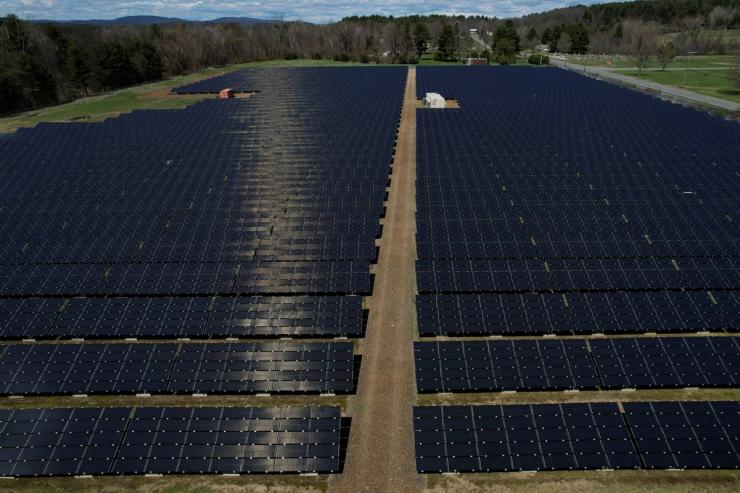The Scoop
Congressional Democrats plan to focus on the risk of rising US consumer energy prices in their pitch to Republicans to walk back proposed deep cuts to clean energy programs.
Rep. Scott Peters (D-Calif.) told Semafor he was “frustrated” with draft budget legislation approved this week in two House committees that would give fossil fuel projects express access to permit approvals, scrap billions of dollars in clean energy grants and loans, and significantly scale back tax credits for renewables, nuclear power, and other technologies. Peters said he plans to keep reminding his more conservative colleagues that removing tax credits for clean energy amounts to a higher tax on all energy. A study shared today exclusively with Semafor by the Clean Energy Buyers Association, an industry group, found that some states would lose an average of $336 in annual household income if the tax credit cuts proceed as planned, thanks to higher energy costs and reduced job opportunities.
“Everyone agrees we need all this energy. The quicker we do it, and the more we get, the cheaper it will be. The stuff that’s in line, literally hundreds of gigawatts, is mostly solar and wind. If you just cut [the tax credits] off, all those projects die,” Peters said. “We have a choice between higher energy bills and astronomically higher energy bills.”
In this article:
Tim’s view
While the tax credit proposal passed out of committee this week was less extreme than it might have been — dozens of House Republicans are cheering for the credits to be killed immediately — it would still be a major setback for the US clean energy industry, and for the effort to make energy cheaper and more abundant. But it’s just a starting point for negotiations. More than two dozen House and Senate Republicans have championed keeping them intact or adopting a more prolonged phaseout; on Wednesday, Rep. Andrew Garbarino (R-NY) called the tax proposal “pretty bad,” and Ways and Means Committee vice chair Rep. Vern Buchanan (R-Fla.) promised “there’s gonna be a lot of changes.”
A few things will be on the table. First, which credits should get targeted for an early phaseout. A bill Garbarino and other Republicans introduced last week, which analysts see as a likely landing zone for a final compromise, shaves a few years off the wind and solar credits but wouldn’t touch those for nuclear, hydrogen, and other advanced low-carbon tech. It also preserves credit “transferability,” which allows project developers to access a much larger pool of potential investors. And it is more lenient on foreign sourcing restrictions that in the current proposal “make it pretty difficult for anyone to use these credits,” said Jeremy Harrell, CEO of the conservative advocacy group ClearPath Action. Whatever sunset years they agree to, lawmakers will also need to negotiate whether qualifying projects merely need to break ground by that year, which the current law provides for, or be fully in service, which would mean the very technologies that are farthest down the road and most in need of support would get the least tax benefit.
Based on data in a separate Rhodium Group study this week, the proposed credit cuts would increase total spending on energy by US households by $109-339 billion by 2035. Figures like those — which don’t even count the myriad economic costs of living in on a hotter planet — are even more politically salient now than they were a few years ago when the Inflation Reduction Act passed, as the Trump administration has so stridently presented itself as the savior of energy security and affordability. And what House Republicans have on the table now, Harrell said, is a plan that “jeopardizes President Trump’s energy dominance agenda.”
Know More
Peters, meanwhile, is already looking past the budget reconciliation debate. He was unhappy with the permitting changes outlined there by the Energy and Commerce Committee, on which he sits. The proposal, which would speed up fossil fuel infrastructure but do little to help the electric grid, is a step backward from the Senate compromise bill on permitting reform led last year by Joe Manchin, which never made it over the line. Some issues, like reforms to environmental impact statements and rules for lawsuits, can’t be addressed in a budget bill; Peters said a separate new permitting bill covering those issues is in the works and “could happen pretty quickly after reconciliation.”
Notable
- Lee Zeldin, head of the Environmental Protection Agency, faced a combative grilling from senators in both parties over planned cuts to billions of dollars in agency funding for clean energy. Zeldin’s strategy, complained Sen. Lisa Murkowski (R-Alaska) is “indiscriminate” and “problematic.”


